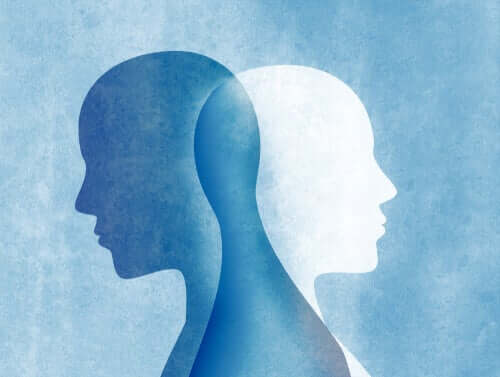We like to present ourselves as good people, both for ourselves and for others. It’s a way to maintain a positive picture of ourselves, which also leads us to have a positive picture of ourselves. So what drives us to commit immoral acts? The explanation lies in the so-called moral license effect.
The effect of moral leave means that if in the past we have acted correctly or morally well, in the future we can act in an “immoral” way. Let’s give an example: how many times, after going to the gym or running, did we say?Today I deserve a gift, I’m going to eat a !?, that is, after morally desired behavior, we give ourselves the right to achieve a less desired one without blaming ourselves.
- Next.
- We will present some studies on the effect of moral license that will allow us to delve into the subject.
- In addition.
- We will be able to see what makes some people more contaminated by this effect.
“The depth and strength of human character are defined by its moral reserves. Do people only reveal the the most when they are far from the usual conditions of their lives, because only then do they have to rely entirely on their reserves?-Leon Tr’tski-
The effect of moral leave, by which moral behavior allows a person to behave immorally afterwards, has been demonstrated in many experiments. Psychological behavioral theories highlight a human being’s desire for cognitive coherence in his or her thoughts, feelings, and behaviors.
Rather intriguing research into moral licensing? It nuances this desire for coherence by suggesting that people who behave in a morally laudable manner feel more justified in taking a morally questionable action (Merritt, Effron
“Moral sense tells us how far authorized designs go and where prohibited licensing begins. “- Yoritomo Tashi-
In the study, it was noted that “moral licenses” lead to a broad spectrum of undesirable behaviors. For example, after remembering previously moral or socially desirable behaviors, people have shown more harmful attitudes.
According to the survey authors, good deeds of the past can free people from unethical or problematic behaviors that they would otherwise avoid for fear of feeling or seem immoral.
Another study, led by Jessica Cascio and E. Ashby Plant in 2016, concluded the following regarding the effect of moral leave:
“Morality is a private convention; decency, a public matter; Has any highly visible license always had the effect of showing bad rights?. – Marguerite Yourcenar-
An important contribution to moral license literature examines how writing about one’s positive or negative traits can influence charitable donations and cooperative behavior in a common dilemma (Sachdeva, Iliev and Medin, 2009).
Based on their conclusions, the authors argued that this moral license effect can best be interpreted as part of a broader framework of moral self-regulation, in which the internal balance of moral self-esteem and the costs associated with prosocial behavior determine whether someone will have moral or immoral behavior.
Finally, the study authors suggest that establishing a moral identity leads people to feel empowered to act immorally, however, when moral identity is threatened, moral behavior is a means of regaining some of the lost self-esteem.
In other words, when a moral image of oneself is established, immoral action is allowed without fear of losing that moral image (moral license); however, when someone seems immoral to others, positive actions are required to restore moral image (moral cleansing). ).

